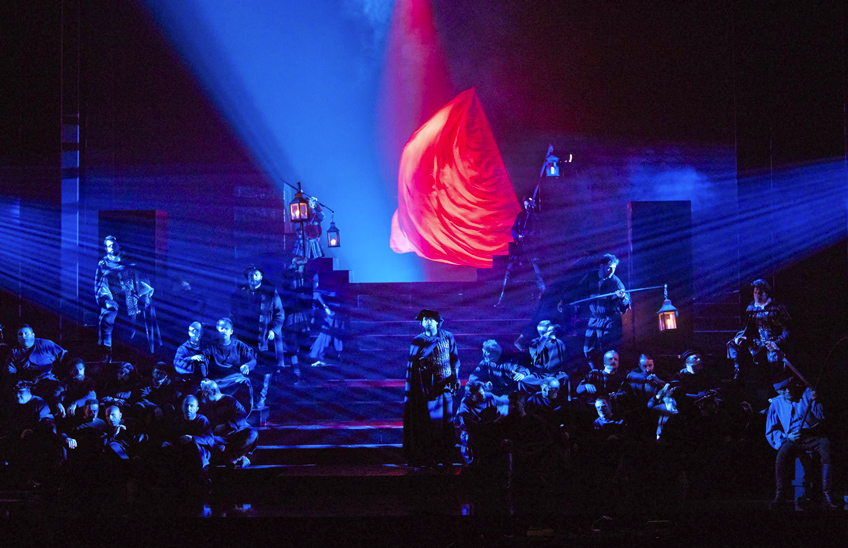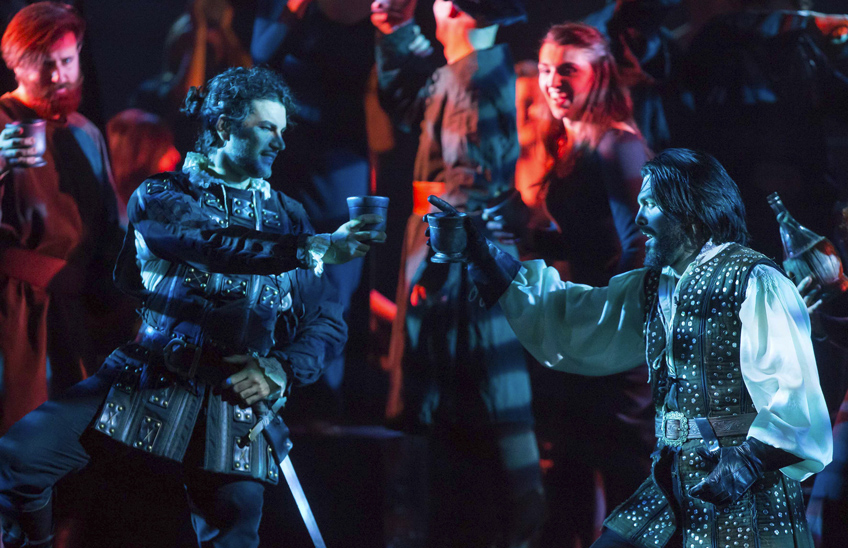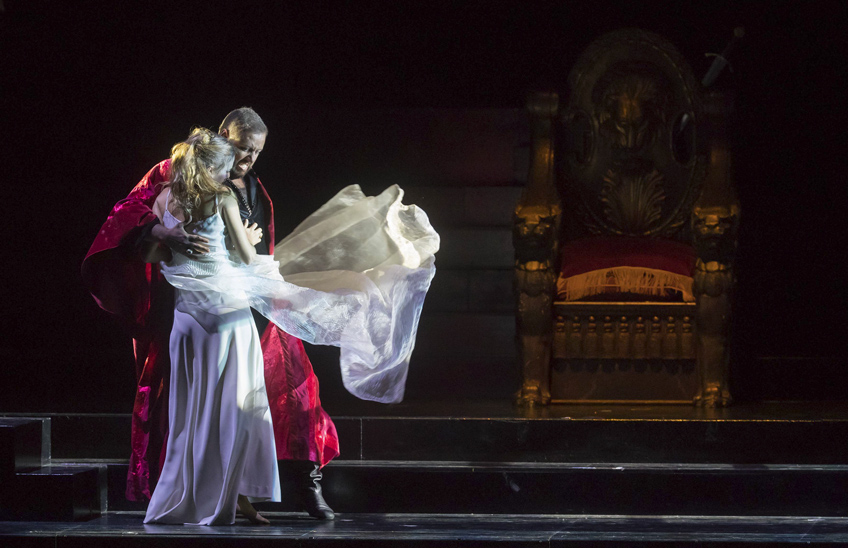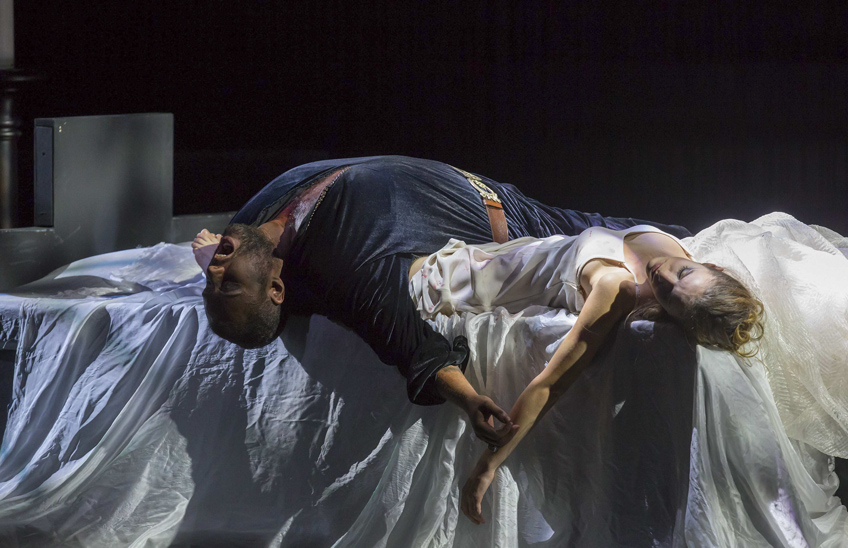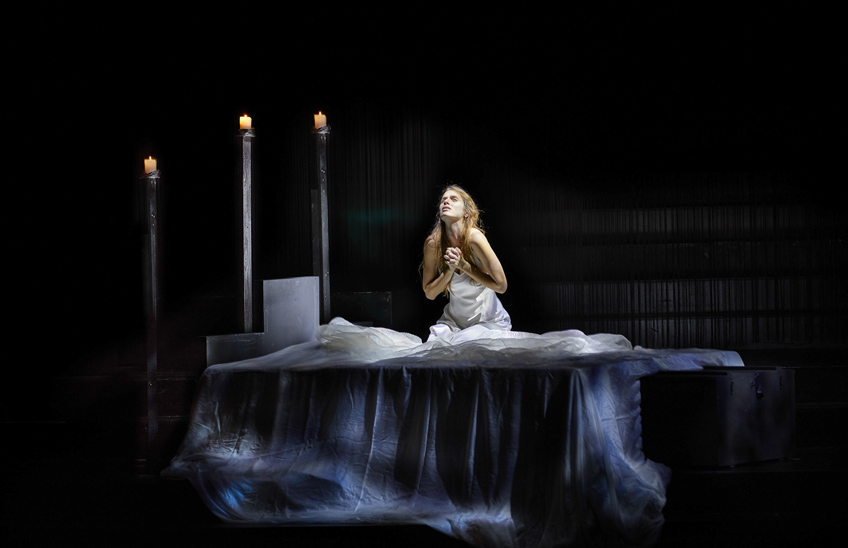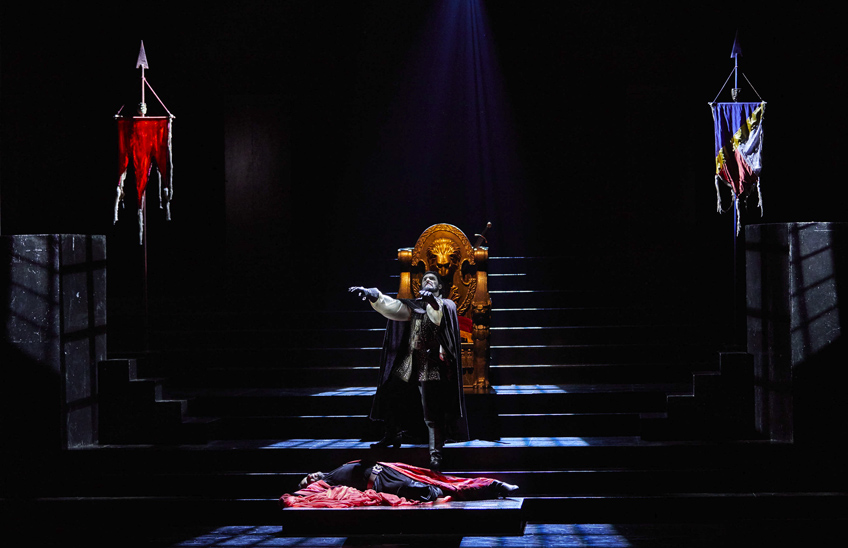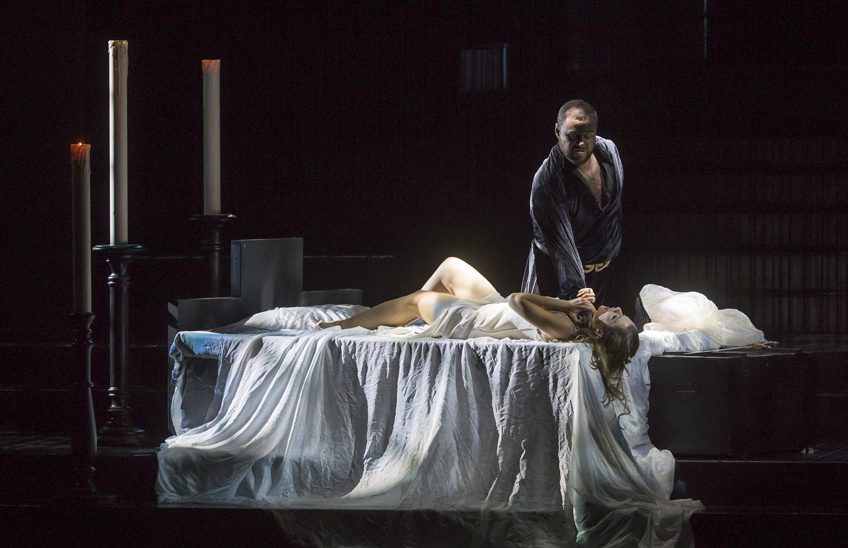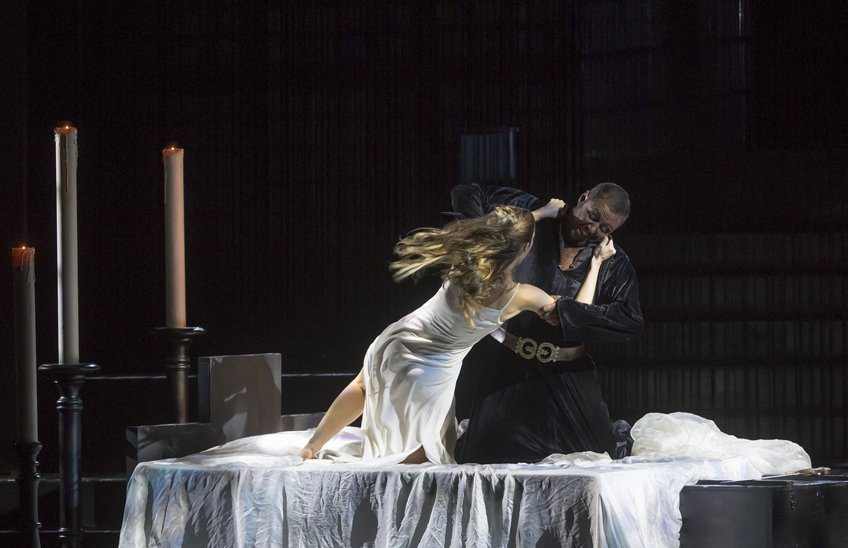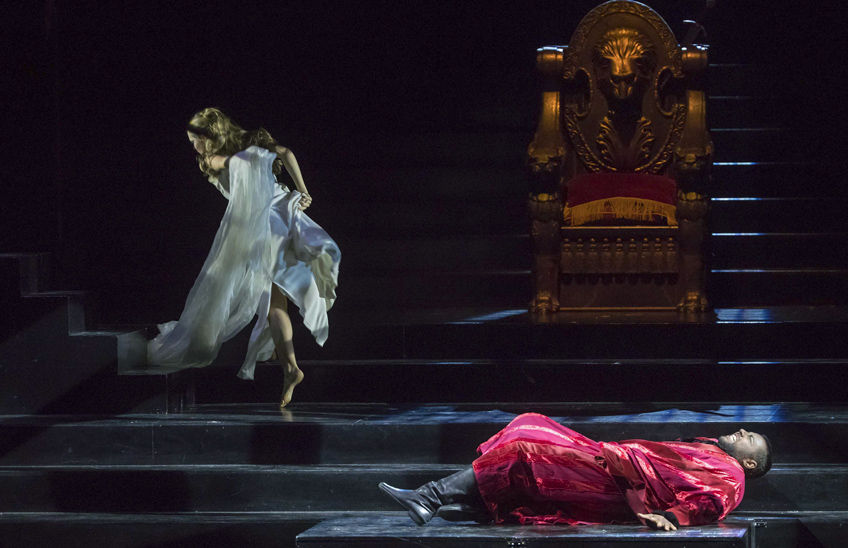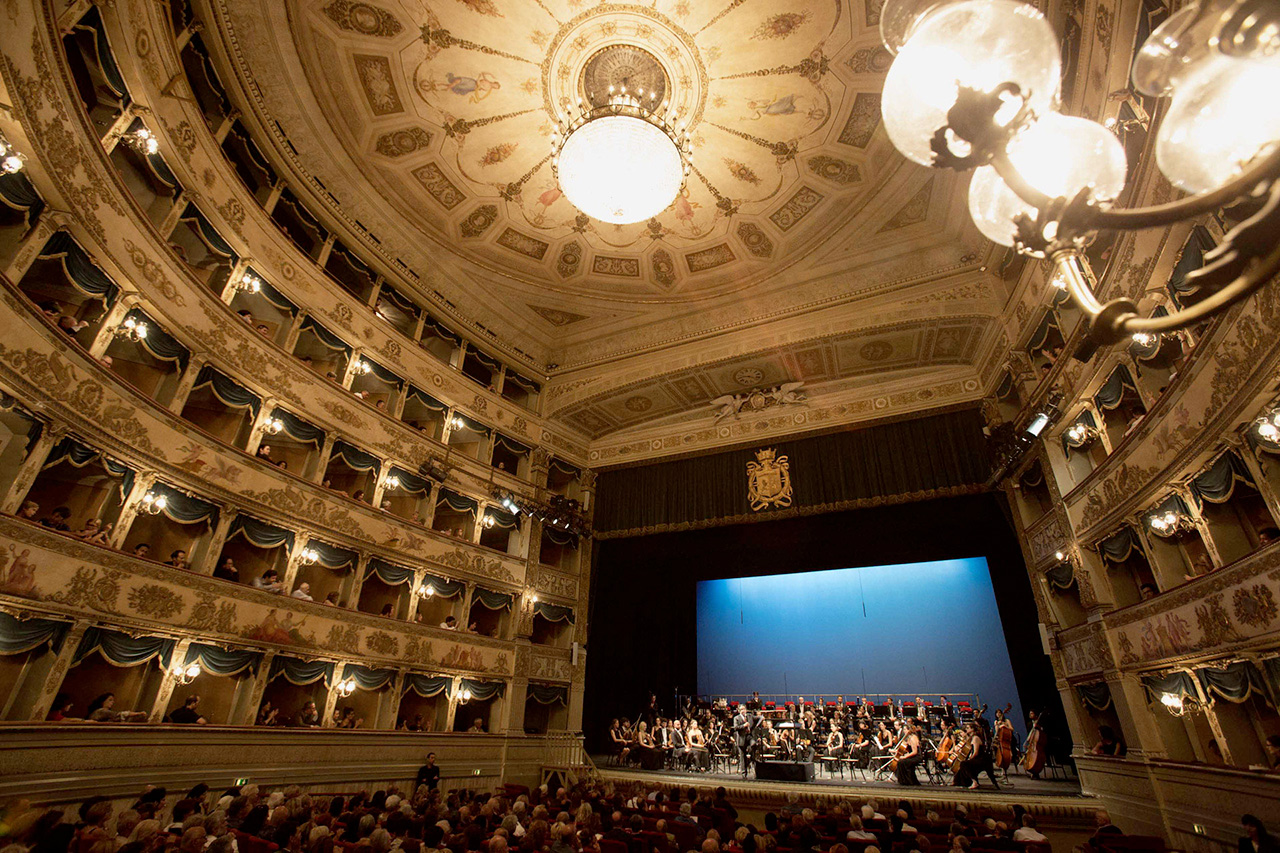Autumn Trilogy
Otello
opera in four acts
libretto Arrigo Boito from the play Othello by William Shakespeare
music Giuseppe Verdi
(Universal Music Publishing Ricordi srl, Milano)
Otello Mikheil Sheshaberidze
Jago Luca Micheletti
Cassio Giuseppe Tommaso
Roderigo Giacomo Leone
Lodovico Ion Stancu
Montano Paolo Gatti
A herald Andrea Pistolesi
Desdemona Elisa Balbo
Emilia Antonella Carpenito
conductor Nicola Paszkowski
direction and concept Cristina Mazzavillani Muti
light design Vincent Longuemare
costume design Alessandro Lai
Orchestra Giovanile Luigi Cherubini
Coro Lirico Marchigiano “Vincenzo Bellini”
choirmaster Martino Faggiani
other choirmaster Massimo Fiocchi Malaspina
Coro di Voci Bianche Ludus Vocalis
choirmaster Elisabetta Agostini
“DanzActori” Trilogia d’autunno
stage manager Luigi Barilone
répétiteurs Alessandro Benigni, Davide Cavalli
set design Laboratorio del Teatro Alighieri
costumes Tirelli Costumi Roma footwear Calzature d’Arte Pedrazzoli srl
co-production Ravenna Festival, Teatro Alighieri di Ravenna, Teatro del Giglio di Lucca
A new lyric marathon: three operas performed on the same stage on consecutive nights, tight rhythms and a workshop that plays on invention and creativity matching young talents and modern technologies. This is the Autumn Trilogy, which once again delves into Verdi’s world and genius, transforming the stage of the Alighieri Theatre into a true “opera factory” giving body and voice to three different steps in the composer’s artistic career. A new production alongside two creations from the “repertoire” of past Autumn Trilogies, in an ideal journey from the biblical, choral inspiration of Nabucco to the beacon of light out of darkness kindling the soul of Rigoletto, down to the dramatic colour contrast that unites/separates Otello and Desdemona.
A trilogy intended to retrace Verdi’s extraordinary creative career had to start with Nabucco (1841), the opera through which the composer managed to overcome fate’s adversity and get his life back on track as a man and a musician. An opera whose biblical and prophetic dimension culminates in a choral tapestry capable of incorporating different individualities into an ideal union of peoples and nations. This score laid the basis for Rigoletto (1851), which soon became the first part of a “popular trilogy” and the author’s own favourite work because of the vivid description of the protagonist within a perfect dramatic unity. And, after all, Nabucco also laid the foundations for the entirely renewed conception of Otello (1887), inspired by Shakespeare, the inevitable culmination of Verdi’s search for “climactic words” (parola scenica).
